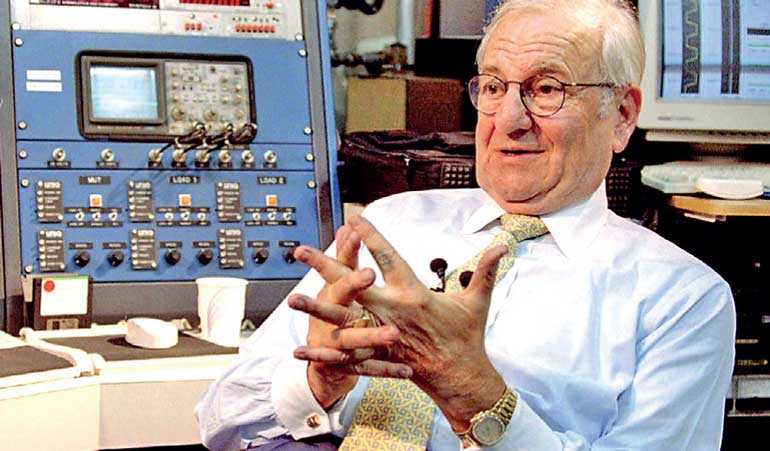Sunday Feb 22, 2026
Sunday Feb 22, 2026
Thursday, 4 July 2019 02:10 - - {{hitsCtrl.values.hits}}

Reuters: Lee Iacocca, the charismatic US auto industry executive who gave America the Ford Mustang and was celebrated for saving Chrysler from going out of business, has died at the age of 94, Fiat Chrysler said.
Iacocca died Tuesday at his home in Bel-Air, California of complications from Parkinson’s disease, his daughter Lia Iacocca Assad told the Washington Post.
“The company is saddened by the news of Lee Iacocca’s passing. He played a historic role in steering Chrysler through crisis and making it a true competitive force,” Fiat Chrysler Automobiles said in a statement.
“He was one of the great leaders of our company and the auto industry as a whole. He also played a profound and tireless role on the national stage as a business statesman and philanthropist,” the company said.
During a nearly five-decade career in Detroit that began in 1946 at Ford Motor Co, the proud son of Italian immigrants made the covers of Time, Newsweek and the New York Times Sunday Magazine in stories portraying him as the avatar of the American Auto Age. One of the first celebrity US chief executives, his autobiography made best-seller lists in the mid-1980s.
Iacocca was a cracker-jack salesman. He encouraged his design teams to be bold, and they responded with sports cars that appealed to baby boomers in the 1960s, fuel-efficient models when gasoline prices soared in the 1970s, and the first-ever, family-oriented minivan in the 1980s that led its segment in sales for 25 years. “I don’t know an auto executive that I’ve ever met who has a feel for the American consumer the way he does,” late United Auto Workers Union President Douglas Fraser had said. “He’s the greatest communicator who’s ever come down the pike in the history of the industry.”
Iacocca also had some duds, such as the Ford Pinto, an economy car that became notorious for exploding fuel tanks. “You don’t win ‘em all,” he said of the Pinto. Iacocca won a place in business history when he pulled Chrysler, now part of Fiat Chrysler, from the brink of collapse in 1980, rallying support in US Congress for $ 1.2 billion in federally guaranteed loans and persuading suppliers, dealers and union workers to make sacrifices. He cut his salary to $ 1 a year.
Iacocca was often described as a demanding and volatile boss who sometimes clashed with fellow executives.
“He could get mad as hell at you, and once it was done he let it go. He wouldn’t stay mad,” said Bud Liebler, vice president of communications at Chrysler during the 1980s and 1990s. “He liked to bring an issue to its head, get it resolved. You always knew where you stood with him.”
Iacocca often spoke of his immigrant roots and how America rewards hard work. When he was tapped by President Ronald Reagan in 1982 to be chairman of a campaign to restore the Statue of Liberty and Ellis Island, he said he accepted the job as a way of honouring his parents.
The campaign raised more than $ 350 million, more than double the initial $ 150 million goal.
Iacocca began his career just as post-war prosperity kicked the Auto Age into high gear. By the 1970s, many new suburban homes came with a two-car garage.
Lido Anthony “Lee” Iacocca was born in the Pennsylvania steel town of Allentown on Oct. 24, 1924. His father, Nicola, owned a hot dog stand he called The Orpheum Wiener House – a foretaste of his son’s later marketing creativity.
In high school he was freshman class president, “a big shot,” he had thought. But when he stopped shaking his classmates’ hands, he lost re-election. “It was an important lesson about leadership,” Iacocca wrote.
He was a diligent student, made the debating team and was a star in Latin class. Sophomore year he survived rheumatic fever, an illness that later kept him out of the military during World War Two, and graduated 12th in a class of more than 900.